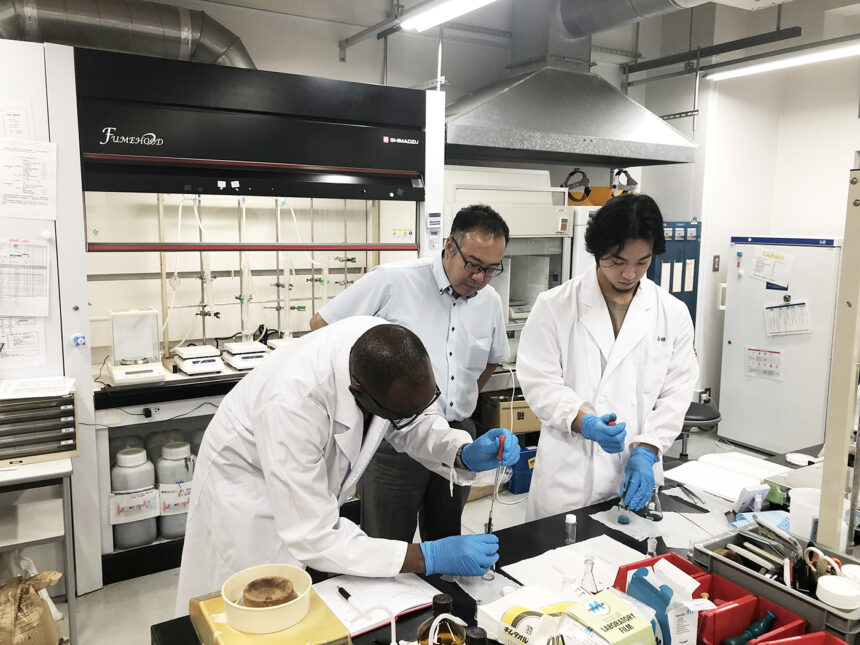Two students from the University of Namibia (Unam) have travelled 14 092 kilometers to Japan, eager to broaden their horizons through the Sakura Science Exchange Programme.
David Nanhapo and Klaudia Mwatile have recently distinguished themselves as Namibia’s inaugural participants in this initiative.
They are pursuing postgraduate studies at Unam.
Nanhapo is a PhD candidate in chemistry, while Mwatile is a Master of Science in Renewable Energy student. The two participated in the 29th International Symposium of the Society of Pure and Applied Coordination Chemistry (SPACC).
This annual event, hosted at Hokkaido University in Sapporo, Japan, serves as a platform for the latest developments in coordination chemistry.
During the symposium, the students had the privilege of presenting their research.
Mwatile, who is concentrating on the creation of anti-soiling coatings for solar cells, found the feedback she received to be extremely beneficial.
“It pushed me to think more critically about my work,” she shared.
The Sakura Science Exchange Programme aims to enhance international cooperation in the fields of science and technology.
This initiative allows young researchers and students from around the globe to engage in short-term exchanges, providing them with the opportunity to witness Japanese innovation in practice.
Nanhapo’s research on sustainable copper extraction received positive feedback.
His experience in the laboratory at KUTE-Tokyo, where he utilised state-of-the-art equipment and worked closely with Professor Hiroki Nagai, was a significant aspect of his journey.
The academic environment in Japan made a lasting impression on the participants.
Mwatile was particularly struck by the formal and research-oriented approach prevalent in Japanese universities.
Even at the undergraduate level, students were actively engaged in various projects, contributing to a vibrant academic culture.
Nanhapo valued the collaborative spirit inherent in Japanese research endeavours.
“There is a strong emphasis on teamwork and collaboration,” he said, a departure from the more individualistic approach he experienced in Namibia.


